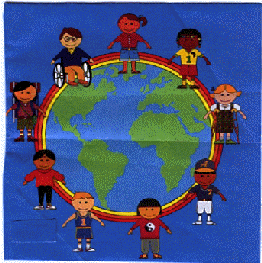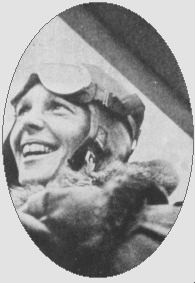1.
Developed an understanding of the scope and breadth of social studies
topics and ideas that need to be covered in the elementary school
curriculum.
Reflection
One of the projects that I feel met this course goal is a lot of our
everyday in class assignments. For weeks you would give each of
us handouts that talked on different major events that have taken place
on an elementary level. All of those were examples of topics we
need to teach and also ideas for how to do it, such as having each
students individually stand and read their paper, with much enthusiasm,
and not monotonous. Also, I thought the human statues were a
great idea also for teaching about Rosa Parks or any other
event.
The other project that I feel went well with the course goal was our
Community/Diversity Analysis Paper, because in order for us to write
the paper, we were given the guidelines of what to include. The
Community/Diversity Analysis Paper was a reflection from our practicum
experience this semester about how our host classrooms did or did not
have a sense of community, how diverse the students are and what is
taught in the classroom about the topics. I think observing the
classroom and writing the reflection using the guideline of questions
showed me things and gave me ideas of how to teach community and
diversity in my future classroom. Those were two things that I
had never thought about teaching before because when you think of a
teacher, reading, writing and arithematic comes to mind, instead of
deeper issues that must be taught also. Below is a link to my
Community/Diversity Analysis Paper.

Link to Community/Diversity Analysis Paper
2. Explored multiple perspectives of social studies topics, address diverse learning needs of learners, and construct hands-on social studies activities which support the New York State Social Studies Learning Standards and NCSS Standards.
Reflection
The project that I feel met this course goal was putting together the
Unit Plan as a group. Even though our whole unit plan is on the
same topic, we all have different perspectives that we all are
sharing. All of our lessons within our group addressed diverse
learning needs by incorporating many multiple intelligences into our
lessons, for example, we used music, photostory, activitiy sheets,
quizzes, and much more. We tried to keep in mind that all
children learn in different ways, so we tried to touch on as many
intelligences as we could. We also had activities that were
hands-on, such as having the students create their own
PowerPoints. Below is a link to the Unit Plan that my group
created.

Link to Unit Plan
3. Explored the strategies of developing an interdisciplianry approach to social studies instruction.
Reflection
The project that, I think, goes with this course goal is our
Children's Book Project. For this project, we were to pick a
woman who made one or many contributions and check out books from the
library on our specific person, then create a full lesson plan on what
and how we would teach about her. This project explored the
strategies of developing an interdisciplinary approach to social
studies instruction by forcing us to come up with new and creative ways
to teach and assess students. For example, instead of testing the
normal way of a written test, we learned to come up with different
ways, such as group presentations, powerpoints, projects, etc.
This helps out the student who has test anxiety and also keeps the
students more interested, because it is more fun than taking a silent
45 minute test, where by the end of the test, your brain feels like
jello and you start second guessing yourself. By being more
creative, you can also integrate other subjects into one, for example,
if I had Amelia Earhart, I could teach about her, but also take my
students to the gym and play an airplane game, that combines learning
and exercising together, making the lesson integrated. An
interdisciplinary or integrated approach is very effective, because
students enjoy it and learn more, not even realizing it sometimes. They
might be having so much fun in the gym that they do not even realize
that they are learning something. You might could also take it in
another direction. You might be teaching about Amelia Earhart and
you want to integrate some language into the lesson, so you could
analyze one of the letters she may have written home during one of her
flights. You could also incorporate math into the lesson by
calculating how many miles she went in a certain amount of time, and so
forth. Below is a link to my Children's Book Project.

Link to Children's Book Project